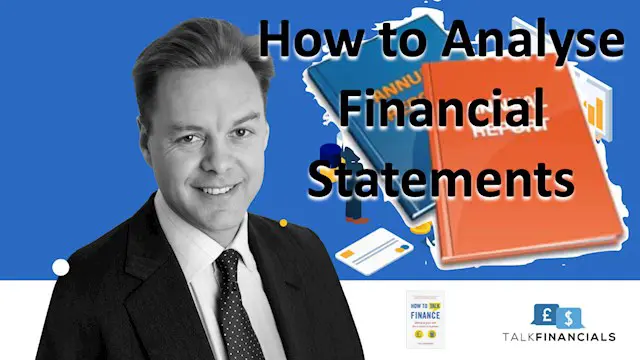
How to Analyse Financial Statements
Learn to read and interpret the Annual Report and Accounts of any company
Talk Financials Ltd
Summary
- Reed courses certificate of completion - Free
Add to basket or enquire
Overview
The ability to read and interpret financial information is a key skill for any aspiring business professional. The workshop will take delegates through the key ratios that will help to read and interpret financial information. From examining the profitability in the income statement, to assessing the strength of a balance sheet and on to the ability of a company to generate cash - this workshop will provide delegates with a the tools and the confidence to be able to assess the financial strength of a company in a short period of time. Packed with helpful tips and using well-known companies, this workshop is a practical hands-on course, which clearly shows how to apply the theory to a wide variety of financial statements.
Certificates
Reed courses certificate of completion
Digital certificate - Included
Will be downloadable when all lectures have been completed
Curriculum
-
Introduction 17:46
-
The Financial Statements 2:26:54
-
Profitability Margin Analysis 51:56
-
Return on Investment Analysis 32:32
-
Efficiency Ratio Analysis 11:49
-
Solvency Ratio Analysis 1:01:10
-
Liquidity Ratio Analysis 1:31:48
-
Cash Flow Analysis 54:58
-
Asset Valuation 1:05:04
-
Other Considerations 1:17:36
-
Review 03:55
Course media
Description
We start with the basics of the key financial statements - what they are (income statement / balance sheet / cash flow statement) and how they interact. We then look at reading and interpreting this financial information including:
- Profitability analysis: Gross, Operation & Net Profit Margins; EBIT and EBITDA; Operational Gearing
- Return on Investment: Return on Capital Employed (ROCE); Return on Assets (ROA); the Weighted Average Cost of Capital (WACC); the ability to generate value measured though the Economic Value Added (EVA)
- Efficiency: Asset Turnover; Du Pont Analysis (examining how the ratios interact)
- Solvency: Debt to equity; Leverage; Interest Cover; Net Debt to EBITDA; Du Pont Analysis revisited; Return on Equity (ROE)
- Working Capital: Current Ratio; Acid Test / Quick Ratio; Working Capital Requirement
- Cash Flow: Operating Cash Flow (OCF); Net Cash Flow (NCF); Free Cash Flow (FCF)
- Asset Valuation: fundamental v relative valuation; Dividend Cover & Yield; PE Ratios; Goodwill
Finally we will consider other considerations to bear in mind when assessing the financial health of an organisation.
Who is this course for?
This course is for aspiring finance professionals who want to hone their skills in reading a set of financial statements. It will also appeal to any aspiring business professional who has a grasp of the fundamentals of business finance and is looking to improve their financial fluency.
Requirements
We recommend that a basic understanding of finance for this workshop including:
- How a company is financially structured
- How a company trades
- How a company is funded
Career path
A good introduction to this workshop is "How to Talk Finance"
Questions and answers
Currently there are no Q&As for this course. Be the first to ask a question.
Reviews
Legal information
This course is advertised on reed.co.uk by the Course Provider, whose terms and conditions apply. Purchases are made directly from the Course Provider, and as such, content and materials are supplied by the Course Provider directly. Reed is acting as agent and not reseller in relation to this course. Reed's only responsibility is to facilitate your payment for the course. It is your responsibility to review and agree to the Course Provider's terms and conditions and satisfy yourself as to the suitability of the course you intend to purchase. Reed will not have any responsibility for the content of the course and/or associated materials.


